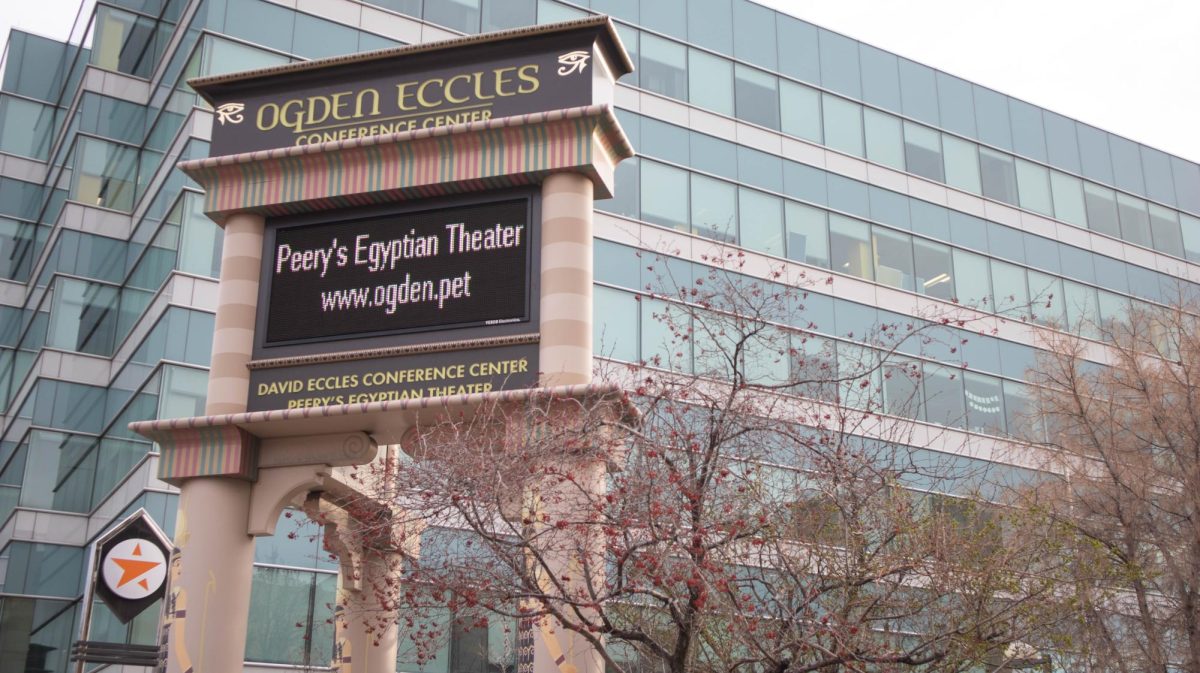[media-credit name=”Associated Press” align=”alignright” width=”300″] [/media-credit]Although the job market is a cutthroat place at the moment, those with a degree have the lowest unemployment rate, according to Winn Stanger, director of Career Services. Undergraduate students who are graduating this fall may also be heartened by Utah’s economic climate as reported in Utah on the Move, a presentation which strives to educate about Utah’s economy. In the publication, the Kauffman Foundation reports that Utah is the most “fiscally-fit state,” and according to Forbes, Salt Lake City is the “fourth best city for young professionals” for 2011.
[/media-credit]Although the job market is a cutthroat place at the moment, those with a degree have the lowest unemployment rate, according to Winn Stanger, director of Career Services. Undergraduate students who are graduating this fall may also be heartened by Utah’s economic climate as reported in Utah on the Move, a presentation which strives to educate about Utah’s economy. In the publication, the Kauffman Foundation reports that Utah is the most “fiscally-fit state,” and according to Forbes, Salt Lake City is the “fourth best city for young professionals” for 2011.
Well under the national average of 9.1 percent, Utah’s unemployment rate stands at 7.4 percent, according to the United States Bureau of Labor Statistics. According to Weber State University’s Graduate Survey Report for those who graduated with a bachelor’s degree in spring 2011, 69 percent were employed full-time. Those who graduated with an associate’s degree had a 49 percent full-time employment rate.
“We’re fortunate that many of our students already have job skills and experience when they graduate, and that makes them very attractive to employers, and in many cases, they already have a company they’re working for,” Stanger said.
Stanger said job opportunities are still strong in health professions, computers and technology, engineering, and business. Employers are attracted to Utah “because of our highly educated workforce and our very strong work ethic,” Stanger said.
Despite all of this, Stanger said the job market is highly competitive, and the education and liberal arts majors are entering a challenging market. He said the best way for undergraduates to prepare for life after graduation is to obtain an internship. Upon speaking with Goldman Sachs, a banking and securities firm, Stanger said they expressed interest in hiring at least twice as many interns from WSU as they did last year. He said Goldman Sachs will visit WSU to talk with students on Nov. 16.
For those who have already graduated and are having trouble finding employment, Stanger said they should join a professional association for their career field in order to network with people who can then direct them towards a job. He also suggested that through contract work, internships for graduates or volunteer work, a person can gain experience and knowledge which in turn adds to a resume.
Citing the Education and Training Pay publication by the Postsecondary Education Opportunity, Stanger also said obtaining a bachelor’s degree increases the yearly earning potential of high school graduates by $20,000, which adds up to a one-million dollar difference over a 50-year career.
“The amount of unemployment for people with a high school degree is 10.3 percent. It drops clear down to 5.4 percent for people with bachelor’s degrees,” Stanger said.
Brent Jenkins, a junior studying global economics, said he is aware of how “meager” the job market is and is working to increase his “human capital, knowledge and skill-sets” by frequenting the Career Services Center.
“There are so many (WSU business school) administrators who really try to help you get ahead,” Jenkins said. “I’ve heard from several Weber State business graduates that they’ve never felt like a degree from Weber State was a disadvantage compared to anyone else in the job market.”
Stanger said students should come to the Career Services Center “early and often to take advantage of the services, getting themselves better prepared for the job market and for being competitive in what they do.”



















